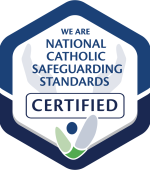Home » National Redress Scheme
The National Redress Scheme:
The National Redress Scheme involves:
For an application for redress to be approved, there needs to be a “reasonable likelihood” that:
The National Redress Scheme will consider all relevant information available, including:
Reasonable likelihood “means the chance of the person being eligible is real and is not fanciful or remote and is more than merely plausible”.
It must be considered reasonably likely the applicant meets each of the scheme’s eligibility requirements, including that it is reasonably likely that a person experienced sexual abuse as a child, and that a participating institution is responsible for bringing an alleged abuser/s into contact with them.
Certain factors will inform the decision about whether or not the alleged abuse was reasonably likely, including (but not limited to):
In determining reasonable likelihood, the National Redress Scheme recognises that some people:
National Redress Scheme, phone line 1800 737 377 available 8am-5pm, Monday to Friday
Complaints or feedback, email: complaints@dss.gov.au
Office:
50 Crebert St, Mayfield
PO Box 152, Mayfield NSW 2304
P: 02 4979 1390
E: childprotection@mn.catholic.
www.officeofsafeguarding.org.au
